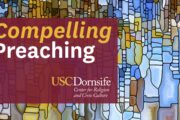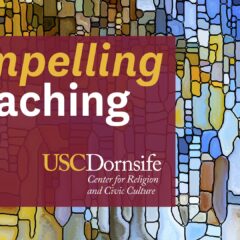CRCC’s Brie Loskota was quoted in The Washington Post about evangelical Christians’ work against sex trafficking.
This goal of uplifting individual human dignity drives U.S. evangelicals to fight sex trafficking, Loskota said. “It is a moving idea, for just about anyone, but particularly in the evangelical world. The fact that they come together in a way that is non-shaming for the victims, is a remarkable testament for how evangelicals are being smart in this movement.”
An excerpt from the article:
Mint is her nickname, an Anglicized version of the long Thai name she was given and would rather not make public. As a former prostitute, the 24-year-old is concerned about bringing shame to her family, though she says everyone in her village in the northeastern province of Issan — a poor agricultural region along the border with Cambodia and Laos — would assume, or simply know, she had to be doing sex work to send money back home.
Everyone in Bangkok knows how it works. Many of the countless massage parlors, go-go bars, and karaoke joints peppered throughout the city are frequently thinly veiled fronts for prostitution. Heavily made-up girls hang around in the periphery of joints catering to Western tourists. Most of the Asian customers, including Thai men, head to brothels and bars elsewhere, away from the sex tourism districts.
Sex work is such big business in Thailand that the International Labor Organization estimates, conservatively, that it generates 7 percent of the country’s gross domestic product. An ILO report from the late 1990s says sex workers sent home $300 million a year to rural areas, “more than any government development project.”
Not all sex work is done willingly, and some would argue that prostitution is by its very nature exploitative, as well as a driving factor for human trafficking — the sale, transport and profit from human beings who are forced to work for others, often referred to as the modern equivalent of slavery.
Thailand is struggling to curb trafficking amid international pressure and dozens of American groups, many of them evangelical, have entered the country in recent years to fight the issue, with the blessing of U.S. foreign policy. …




